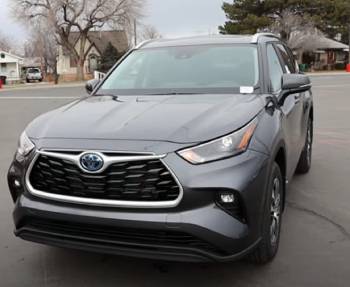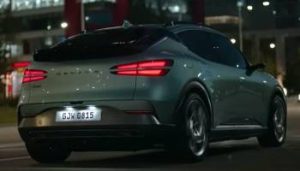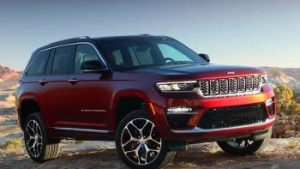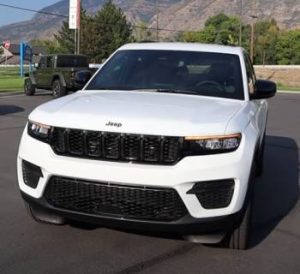When it comes to selecting the perfect family SUV, it’s a jungle out there. The Toyota Highlander and its hybrid variant, the Highlander Hybrid, are consistently among the top contenders in the midsize SUV segment.
Let’s navigate through this jungle and understand which model suits you the best.
A Brief Comparison Table
| Feature/Aspect | Highlander | Highlander Hybrid |
| Powertrain | V6 Gasoline Engine | Combination of Gasoline Engine and Electric Motors |
| Fuel Efficiency | Moderate | High |
| Initial Cost | Generally Lower | Higher |
| Resale Value | Good | Very Good (often higher due to increasing demand) |
| Environmental Impact | Higher carbon emissions | Reduced carbon emissions |
| Maintenance | Regular, generally less expensive repairs | Less frequent, but potentially pricier when required |
| Drive Feel | Powerful at high speeds | Smooth at low speeds, efficient in city drives |
Both the Highlander and its hybrid variant are excellent choices, but the best one for you boils down to your individual preferences and priorities. Whether you value raw power, fuel efficiency, or environmental considerations will dictate which of these two formidable SUVs is your perfect match.
Highlander Hybrid: Embracing the Future with Elegance

Pros:
- Fuel Efficiency:
The primary advantage of the Highlander Hybrid is its impressive fuel economy. You’ll get more miles per gallon, translating to fewer stops at the gas station and, of course, monetary savings.
- Eco-friendly:
The hybrid is a better choice for the environment due to reduced greenhouse gas emissions compared to its non-hybrid counterpart.
- Quieter Rides:
Thanks to its electric motor, the Highlander Hybrid offers quieter operations, especially during low-speed drives or when it’s in electric mode.
Cons:
- Higher Initial Cost:
Expect to shell out a bit more upfront for the hybrid variant. However, one could argue that the higher price can be offset over time through fuel savings.
- Trunk Space:
Due to the battery pack, you might find a slight reduction in cargo space in the hybrid model.
- Maintenance:
While hybrids often require less frequent maintenance, when they do need repairs, it can sometimes be pricier due to the complexity of hybrid systems.
Also Read: Is Having AAA Tire And Wheel Insurance Wise?
Highlander: Classic and Robust.

Pros:
- Powerful Performance:
The traditional Highlander, with its V6 engine, provides more power and acceleration, making it feel a bit zestier on the highways.
- Lower Initial Cost:
If you’re on a budget, the non-hybrid Highlander starts at a lower price point.
- Simplicity:
For those not yet ready to dive into the world of hybrids, the regular Highlander offers familiarity and straightforwardness in terms of maintenance and usage.
Cons:
- Fuel Efficiency:
Naturally, the Highlander will consume more fuel than its hybrid sibling.
- Environmental Impact:
More fuel consumption means more carbon emissions.
- Resale Value:
Hybrids tend to have better resale values owing to the increasing demand for eco-friendly vehicles.
Also Read: Differences Between Discount And Costco Tires.
Key Differences Between Highlander Hybrid and Highlander
Toyota’s Highlander series has always been a popular choice for SUV enthusiasts. Both the Highlander and its hybrid counterpart come with their unique features, advantages, and trade-offs. Here, we’ll dive deeper into the key distinctions between the two.
- Powertrain and Performance
Highlander:
The traditional Highlander predominantly comes equipped with a V6 engine. This powerhouse delivers strong acceleration, making it an absolute joy on the highway. For those who prioritize performance, this might be the preferable choice.
Highlander Hybrid:
The hybrid version combines a gasoline engine with electric motors. This dual system facilitates improved fuel efficiency and smoother acceleration at lower speeds. Though it might not offer the same ‘punch’ as the V6 at higher speeds, it’s perfect for city drives and short trips.
- Fuel Efficiency
Highlander:
The non-hybrid Highlander, while powerful, doesn’t compete with the hybrid when it comes to miles per gallon. If you’re planning long road trips or daily long commutes, this could become a consideration.
Highlander Hybrid:
This is where the hybrid shines. Combining electric and gasoline power, the hybrid version can offer significantly better fuel economy. Over time, this can translate into considerable savings and fewer trips to the gas station.
- Initial Cost and Resale Value
Highlander:
Generally, the regular Highlander comes with a lower initial cost compared to the hybrid. However, when you factor in the future resale value, hybrids tend to retain or even gain value due to the growing eco-conscious market.
Highlander Hybrid:
Though pricier initially, the hybrid offers an excellent resale value. Moreover, the savings you accumulate from its fuel efficiency might eventually offset the initial price difference.
- Environmental Impact
Highlander:
More fuel consumption means more carbon emissions. So, while the traditional Highlander is a formidable vehicle, it doesn’t match the eco-friendliness of its hybrid counterpart.
Highlander Hybrid:
With reduced emissions and better fuel economy, the Highlander Hybrid is undeniably the greener choice. If you’re environmentally conscious, this might tip the scales in favor of the hybrid.
- Maintenance and Durability
Highlander:
The regular Highlander is straightforward in terms of maintenance, and Toyota’s reputation for durability means this vehicle can last a long time with proper care.
Highlander Hybrid:
While the hybrid tech can mean less frequent maintenance (thanks to reduced wear and tear on the engine), when it does require repairs, it might be a tad more expensive due to the complex hybrid systems.
Frequently Asked Questions (FAQs)
The primary difference lies in the powertrain. The hybrid Highlander combines a gasoline engine with electric motors, which improves fuel efficiency and reduces emissions. In contrast, the regular Highlander typically uses just a gasoline engine.
The main differences are in terms of features and amenities. The XLE trim usually offers more luxurious features, like a sunroof, advanced infotainment system, and better upholstery compared to the LE trim. It’s essentially an upgrade in terms of comfort and convenience.
Toyota Highlander Hybrid refers to the hybrid variant of the Toyota Highlander SUV. It combines a gasoline engine with electric motors to provide better fuel efficiency and reduced emissions compared to its solely gasoline-powered counterpart.
Absolutely! Toyota has a longstanding reputation for producing reliable vehicles, and the Highlander Hybrid is no exception. Many users report its durability and low maintenance requirements.
On average, Toyota hybrid batteries are designed to last for about 150,000 to 200,000 miles. However, the actual longevity can vary based on usage, maintenance, and driving conditions.
Hybrid Toyotas are built with the same rigorous standards as their non-hybrid counterparts. With proper maintenance, they can last equally long. In some cases, due to fewer strains on the engine (thanks to the electric motor taking some load), they might even outlast their gasoline-only siblings.
Final Thoughts
Choosing between the Highlander Hybrid and the Highlander boils down to individual priorities. If environmental considerations and fuel efficiency are at the top of your list, the hybrid might be your best bet.
On the other hand, if you’re looking for raw power and a slightly lower upfront cost, the regular Highlander could be the way to go. Either way, with Toyota’s reputation for reliability, you’re in good hands!



